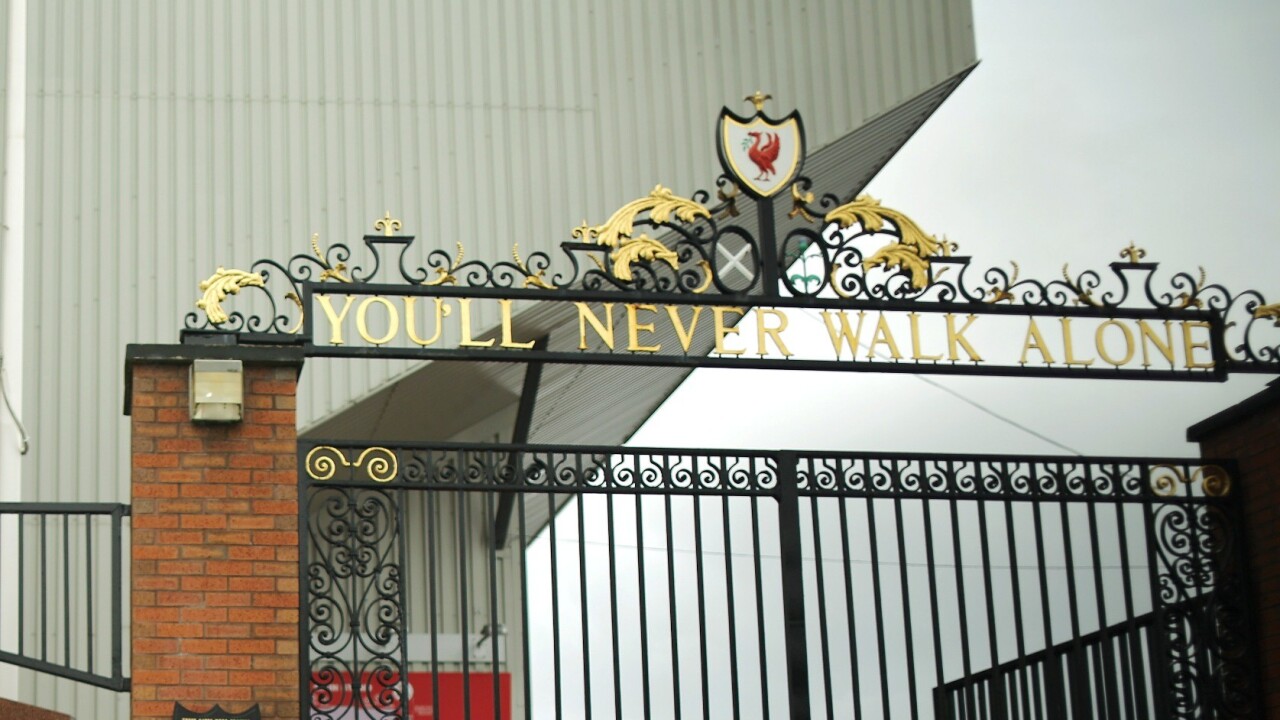
Liverpool Football Club is rolling out a new WiFi network in its stadium, as it looks to capitalize on the growth of digital content created and shared during matches.
The words ‘football’ and ‘digital’ are becoming increasingly intertwined, as the corporate behemoths of Europe’s elite strive to better engage their fans, glean data and, well, generally know more about them. Just ask Manchester City, which started broadcasting fans’ tweets on big screens, and has a full-on digital agenda – it even became England’s first football team to sign a YouTube content deal.
But on match day itself, with fans in the stadium, there has always been an inherent problem: connectivity.
As anyone who has tried using their mobile phones at football games will confirm, perennial 3G issues in and around the stadium due to the mass concentration of mobile phones often restricts what fans can actually do with their pocket rockets. That’s why Man City suggested fans try texting their tweets.
While League Two’s Wycombe Wanderers has been offering WiFi for the past season, Liverpool, as far as we can tell, is the first top-flight UK club, and one of only a handful in Europe, to circumvent this connectivity problem by offering WiFi in Anfield stadium. To real fans…not just corporates.
You’ll never browse alone: Liverpool goes WiFi
Provided by Xirrus, the network will be available to home fans only, starting with the West Ham match on Sunday, April 7.
The first phase of the deployment covers the two-tier, 12,000-seat Centenary Stand, as well as the adjoining corporate facilities. And it seems there are plans to extend this further across the stadium.
By offering WiFi access to its fans, Liverpool says it’s hoping to “improve their overall match day experience and encourage them to share the excitement of the game with the global Liverpool fan base”. And naturally, it also gives Liverpool key insights about its fans, such as what devices they use, which will let the club know what platforms to invest in. We wonder if anyone takes their iPad to matches…there’s probably more than you’d imagine
“Running our own data network based on Xirrus technology means we can provide our fans with a dedicated, robust and high quality experience,” says Andrew Robinson, Head of Digital Media and Technology at Liverpool.
“The added reliability and performance of high capacity WiFi-over 3G connections will encourage our fans to use social networks like Twitter and Facebook to share their experiences with fans unable to make it to the game,” he continues.
To access the network, fans will be asked to register (a one-time process) and then sign-in for each match via their email address.
“We will also find out more about how fans use the stadium and its facilities so we can adapt these to better serve them,” adds Robinson. “We’ll be providing in-match stats, food and drink offers, access to online retail, in-play betting in partnership with Paddy Power and also the ability to engage with a global audience outside of the stadium through social media platforms.”
Money, money, money
This is a key point for Liverpool – it opens up a slew of monetization options. As things stand, many clubs offer betting kiosks in the main concourse inside the stadium – queues, however, can be prohibitive. If fans can place in-match bets directly from their seats, this will create significant sponsorship and partnership opportunities for the club.
Elsewhere in Europe, Real Madrid has been making in-roads on the hi-tech stadia front, as is Barcelona (via Digital Football), but WiFi is still a rare beast in the European soccer scene.
The US is making small strides on this front too – The New England Patriots (American Football) has previously gone WiFi, deploying the NFL’s first stadium-wide, free WiFi network. And to counteract lagging attendances, the NFL is dangling a giant WiFI carrot in front of fans across the country, as it looks to have full connected stadiums in place by 2015.
Back in the UK, hopefully Liverpool’s roll-out will lead to a similar swathe of connected stadiums across the country and further into Europe. We expect more clubs to roll-out WiFi in their stadiums in the not-too-distant future.
Feature Image Credit – Getty
Get the TNW newsletter
Get the most important tech news in your inbox each week.




